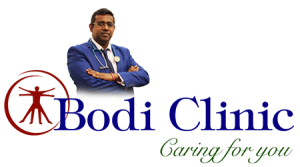Some people use sugary foods in ways that aren’t healthy, even though it may not be an actual addiction. Some signs: You crave sugar, lose control, and eat more than you planned.Sugar fuels every cell in the brain. Your brain also sees sugar as a reward, which makes you want more of it. If you often eat a lot of sugar, you’re reinforcing that reward, which can make it tough to break the habit. Some of the most common sugar addiction symptoms may include headaches, lethargy or feeling tired, cravings, muscle pain, nausea, bloating and even insomnia. In most cases, these symptoms intensify after 24 hours
A balanced diet is a diet that contains differing kinds of foods in certain quantities and proportions so that the requirement for calories, proteins, minerals, vitamins and alternative nutrients is adequate and a small provision is reserved for additional nutrients to endure the short length of leanness. In addition, a balanced diet ought to offer bioactive phytochemicals like dietary fiber, antioxidants and nutraceuticals that have positive health advantages. A balanced diet should offer around 60-70% of total calories from carbohydrates, 10-12% from proteins and 20-25% of total calories from fat.
How to control sugar carvings:
- Intake of fruits like Bananas, apples, oranges.
- It can be controlled by drinking enough water regularly
- Avoid artificial sweeteners
- Consumption of protein rich food
- Talk with people and seek encouraging words from them
- Avoid excess stress
- Getting proper, refreshing sleep is important for overall health and may help prevent cravings
- Avoid fast foods
- Don’t starve yourself
Simple Ways to Cut Lots of Calories and to limit your diet:
- Count your calories: One way to make sure you don’t eat too many calories is to count them.
- Use less sauce and mayonnaise
- Don’t drink sugar – sweetened drinks like soda
- Don’t add sugar to tea and coffee.
- Cooking your own meals gives you better control over the number of calories you eat.
- Don’t keep junk food in the house, to stop the urge to reach for unhealthy snacks, keep them out of the house.
- Bulk up meals with vegetables.
- Drink water before your meals
- Eat slowly
“Eat your food like a medicine or when you’re older you’ll be eating medicine like it’s good”
Any of the strategies above, or a combination, may help to reduce cravings for foods rich in sugars and other types of carbohydrate. However, it may still be a good idea to speak with a professional. A dietician or personal trainer can help a person to develop a healthful diet plan that reduces cravings and associated stress. Ultimately, a person will see the best results if they make dietary changes that they can maintain in the long term.

